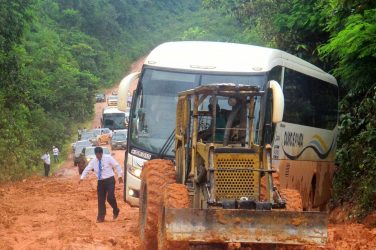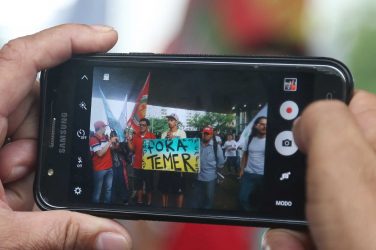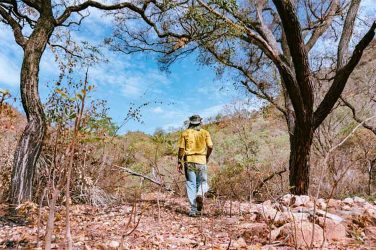Business
Getting a Piece of Brazil
There is an expression “Who doesn’t register is not the owner.” Your contracts and agreements are not valid until they are registered in
Cartório.
Boris Goldshmit
Brazil is a fantastic country that can offer some outstanding life-style opportunities for the right person.
Unfortunately, there is not much information available for people looking into something more than a brief tourist adventure. Property
purchase requires detailed understanding of the requirements of the law and the dynamics of the search, negotiation and buying processes.
This article is not intended to serve as an authoritative source of information related to dealing with a variety of
situations in Brazil. Instead, it serves the purpose of answering some of the most common questions pertaining to a number of
areas as well as orienting you in respect to the possibilities of situation assessment, requirements and, of course, action.
I am a strong believer in pre-emptive approach to solving problems. It is much easier and a lot less expensive to take
some evasive and precautionary actions than to deal with full-blown unanticipated problem. It is even truer in any country
where you have numerous disadvantages of unfamiliarity with judicial process and law, language and culture.
Here are some of the terms and requirements of conducting Real Estate transactions in Brazil:
Can foreigners buy or rent Real Estate Property in Brazil?
Yes, we can. Foreigners are permitted to buy, own and rent Real Estate Property. By law Brazilians and foreigners are
on almost equal footing when it comes to property ownership and tenant rights. Non-Brazilians are subject to certain
limitations dictated by national and security interests. Foreign Governments can’t own Real Estate Property except buildings and
properties used for consulate or embassy sites.
Sources and further information:
Constitution of Federal Republic of Brazil Article 5, Item XXII.
Any local Cartório Office
What documents do I need to buy or rent property in Brazil?
Your travel passport is usually enough in order to sign a rent lease agreement. To buy a property CPF
(Cadastro das Pessoas Físicas) is also required. CPF is easily obtainable by foreigners.
Who can I use as a rental/real estate agent?
There are numerous business establishments and licensed individuals who can offer your services of apartment
rental brokers or for sale property listings.
Administradoras _ Business specializing in administering RE properties for individual owners or condominiums.
Imobiliárias _ Essentially Real Estate Agencies
Procuradores _ ( Real Estate Brokers) Businesses specializing in locating desired properties.
All these businesses can be found in local Yellow Pages under
Administração de Bens, Administraçã de
Condomínios, and Imobiliárias.
Needless to say, references and direct referrals can save you from unscrupulous operators. In case of untried and
unknown agent you might want to verify that the individual or business you are dealing with are members of CRECI
What is CRECI (Conselho Regional de Corretores
Imobiliários) or Regional Council of Property Managers?
CRECI is the Professional Organization regulating career Property Managers and Real Estate brokers. Only
registered members are legally allowed to work as
Corretores (Property Managers). While CRECI membership is not a guarantee
against dishonest actions by certain individuals or companies, it provides you with at least additional leverage and official
complaint organ.
Do I need a local lawyer to conduct Real Estate transactions in Brazil?
It is not mandatory, but recommended.
Can I lose the rights to my property?
Yes, under certain circumstances you can.
What is a Registro Imobiliário?
Registro Imobiliário is the statute of Real Estate Property. In order to claim possession of a Real Estate Property
you have to register the transaction of property ownership transfer at
Registro Imobiliário. Usually takes place at
Cartório do Registro de Imóveis
located in the same jurisdiction as the property, but can also be conducted at any location by an
authorized official.
There is an expression “quem não registra não é
dono” (Who doesn’t register is not the owner). Your contracts
and agreements are not valid until they are registered in
Cartório.
What is the extent of the degree of publicity about ownership of property in Brazil?
It literally means that anybody can have access to property ownership information without any reason or
authorization.
What is Matrícula?
Matrícula is the passport of a Real Estate Property; the only legal relationship between the property and its
Matrícula is one-to-one. Besides uniquely identifying a property,
Matrícula contains detailed description and historical records of
all legal, judicial and financial transactions pertaining to the property and full information, such as description of the
property, its precise address and location, past and present owner information, mortgages etc.
Do all Real Estate Properties have
Matrícula?
No, not all of them do. Only properties that were constructed or involved in some type of legal or financial
transactions since December 31, 1973 have one.
What happens if the property was altered through construction or natural causes and doesn’t correspond to the
description contained in Matrícula any more?
Property description needs to be changed through a judicial process called
Processo de Retificação. Unless you are
willing to plunge into legal quagmire, verify that the property description contained in
Matrícula corresponds exactly to reality.
To be specific, you buy what is on the paper, not the RE property itself.
What documents do I need to request from property seller before considering buying a property?
At a minimum the documents you should ask for are:
– A copy of Certidão de registro da Incorporação no Cartório de Registro de Imóveis.
– A copy of Convenção de Condomínio.
– A copy of License of Construction
(Alvará).
– A Copy of Architectural Plan of the construction approved by the Mayor’s Office.
What do I need to do when I find a property that I’d like to purchase?
– Check for Matrícula of the real estate property.
Matrícula is a document that contains information about all
transactions directly related to the property since its construction. IPTU values, owner information, ownership transfers… It
takes about R$ 10 and three days to obtain a
Matrícula through a local Cartório de Registro de
Imóveis.
Verify that the property is debt and lien free. In order to verify IPTU payment complacency check with
Prefeitura by submitting o número do
contribuinte (registration number) indicated in
Matrícula do imóvel
– Verify that the Condomínio fees are paid off.
Any debts on the property can and should be taken into consideration during the negotiation.
How much should I give for a Sinal?
Sinal (down payment) can range anywhere from 5 percent to 20 percent of the agreed value of the property.
Can I pay for my property in currency other then Real?
No, always pay in local currency.
What is an acceptable commission paid to the Real Estate agent for sale or exchange of a property?
The standard fee is 6 percent of the value of the deal (property). In case of property exchange, commission is usually
split up between the parties involved. In sale, the seller pays.
What is CPF?
CPF (Cadastro das Pessoas Físicas) is an identification number that is used for documentation, registration and
identification of individuals during and for financial transactions.
Why do I need CPF?
CPF is required for identification and registration purposes, to conduct financial transactions, such as opening up a
bank account.
What is Cartório?
Cartório is a Notary Office.
DOMESTIC HELP
How much should I pay domestic help?
Check the local market. Talk to people who have domestic help. Determine whether how much service you need and
number of days per week that you may require it. If you can limit work hours to 6-8 hours up to three times per week, you can
hire help as prestador de serviço and pay only agreed hourly or daily wage. Based on the availability and quality of
domestic help and the amount of work daily rates can be as low as R$ 35 (US$ 15) and as high as R$ 80 (US$ 34). Full time help
should get paid at least 1½ minimum wage plus transportation and other expenses.
What Payroll taxes should I pay if I employ workers in Brazil?
Social Security tax: 20 percent
Other Fees: 2.0 percent to 6.0 percent
Labor Accident Insurance: 1.0 percent to 3.0 percent
Severance Pay Indemnity Fund (FGTS): 8 percent (deposited monthly to employee’s escrow account).
How much do I tip Porteiro?
Tipping is not big in Brazil. Though some places that deal almost exclusively with foreigners became tip oriented, the
majority of establishments are not. Restaurants add 10 percent service fee to the check (BTW, it doesn’t necessarily mean that
the waiter gets it), hotel bell boys (men) would appreciate a Real or two, the taxists are mostly getting by on rounding up the
fare. But what do we do with porteiros (doormen)?
Porteiros are sometimes tipped small amounts (R$1-R$2)—40 to 80 cents—when they provide occasional
assistance services, such as helping with shopping bags or other courtesy gestures. It is not required and oftentimes a smile and
obrigado suffice, but a small tip can go a long way.
What are basic rights granted to workers in Brazil?
Brazilian Labor and Employment Laws are extremely worker friendly. Here are just a few of the guaranteed rights:
1. Wages: Minimal salary is constitutionally guaranteed and is currently set at R$ 136,00 (approximately US$
55.00) a month.
2. 13th Salary: The 13th salary is equivalent to an additional month’s salary paid annually or proportionally to
number of months worked in the year.
3. Vacation: Employees are entitled to at least thirty (30) fully paid vacation days after working one year for the same
employer if not absent from work for more than five unjustified times during this same period.
4. Maximum Workweek is set at 44 hours with overtime pay required for additional time worked. Overtime pay
shall be at least 50 percent more then regular hourly rate
5. Prior notice in case of dismissal: In case the employer wishes to dismiss an employee, he is obliged to give a
prior notice of at least thirty days to the worker.
6. Guarantee Fund for Time of Service (FGTS): The government severance employment Fund (FGTS) is the
equivalent to 8 percent of the employee’s salary, deposited every month by the employer in a blocked FGTS bank account in the
name of the employee. In case of dismissal without cause the employer has to pay a 40 percent penalty of the FGTS over the
entire amount deposited in the FGTS bank account. Withdrawals, are however, authorized only under circumstances
established by law.
What about Christmas presents, bonuses and tips for your building and domestic help?
They are completely at your discretion, with the exception of the Thirteenth Salary.
Boris Goldshmit, the author, is an American, residing part-time in Rio de Janeiro Brazil. After undertaking a
highly challenging step of buying his apartment in Copacabana, Rio de Janeiro, he wrote a book—in which this article was
based—about buying and renting Real Estate in Brazil in order to fill the void of Legal and practical information available to
foreigners interested in property ownership and long-term leasing in Brazil. You can reach him at
boris_goldshmit@yahoo.com












